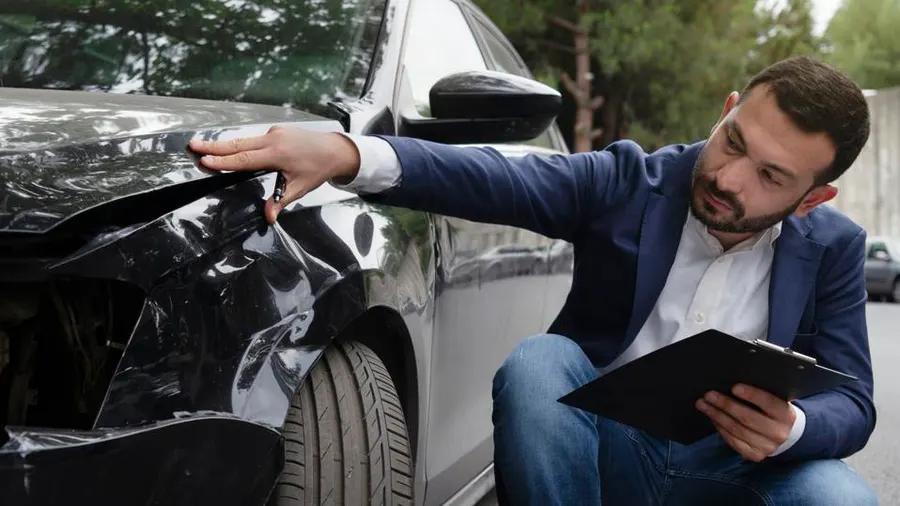Salvage Car Buyer
Salvage Car Buyer
Salvage car buyers specialize in purchasing damaged, wrecked, or non-running vehicles that are typically considered uneconomical to repair. These buyers are often auto recyclers, salvage yards, or companies that repurpose parts and materials from the vehicles they buy. Selling a salvage car can be a great way to recoup some value from a car that’s otherwise unusable. Here’s an extensive guide on salvage car buyers, including what they do, how the process works, factors that influence value, and tips to get the best deal.

Who Are Salvage Car Buyers?
Salvage car buyers are businesses or individuals that purchase cars deemed salvage, often due to extensive damage, accidents, flooding, or mechanical failure. These buyers usually fall into the following categories:
- Salvage Yards and Auto Recyclers: These businesses dismantle cars to salvage usable parts and recycle the remaining materials.
- Rebuilders: Buyers who repair salvage cars to make them roadworthy again, often reselling them as rebuilt or reconstructed vehicles.
- Junk Car Buyers: Companies that specialize in buying and towing away damaged or non-running cars for recycling or parting out.
- Parts Dealers: Buyers who focus on acquiring salvage cars primarily to resell individual parts.
- Insurance Companies: In some cases, insurers may purchase salvage cars directly to recover losses after paying out claims.
Reasons to Sell Your Car to a Salvage Buyer
- Significant Damage: Cars with severe damage from accidents, fires, or floods are often too costly to repair and qualify as salvage.
- Mechanical Failures: Major issues like blown engines, failed transmissions, or other expensive repairs can make a car worth more as salvage.
- Failed Safety or Emissions Tests: Cars that do not meet regulatory standards and are too costly to fix.
- Abandonment or Unwanted Vehicles: Old or unwanted cars that are taking up space or have been left abandoned.
- High Mileage and Depreciation: Vehicles with very high mileage often have diminished value and performance, making them better suited for salvage.
The Salvage Car Selling Process
a. Assess Your Car’s Condition
Before contacting buyers, assess the car’s condition, including the extent of damage, the status of the title (clean, salvage, or rebuilt), and the value of any usable parts.
b. Gather Necessary Documentation
Ensure you have the vehicle title, identification, and any other required documentation. Some buyers can purchase without a title, but this may reduce your payout.
c. Get Multiple Quotes
Contact various salvage buyers, junk car buyers, or salvage yards to get quotes. Prices can vary widely based on the car’s condition, location, and market demand for parts.
d. Compare Offers and Services
Compare offers to determine the best deal. Consider not just the price but also additional services like free towing, immediate payment, or easy paperwork handling.
e. Schedule Pickup or Delivery
Once you accept an offer, schedule a time for the buyer to pick up the car or deliver it to their location. Many salvage buyers offer free towing as part of the service.
f. Complete the Sale and Transfer Ownership
Sign over the title and complete all necessary paperwork to transfer ownership. This step is crucial to avoid any future liabilities related to the car.
g. Get Paid
Most salvage buyers offer payment on the spot, usually in cash, check, or electronic transfer.
Factors Influencing the Value of a Salvage Car
- Make, Model, and Year: Popular or newer models may have higher value due to higher demand for parts.
- Extent of Damage: Less damaged cars or those with usable parts will fetch a higher price.
- Current Scrap Metal Prices: The value of the car’s metal, which fluctuates based on market demand, affects the overall offer.
- Location: Proximity to salvage yards or buyers can impact the offer, with urban areas often yielding higher prices due to higher demand.
- Vehicle Weight and Size: Heavier vehicles typically contain more metal, increasing their scrap value.
- Parts Demand: High-demand parts like engines, transmissions, catalytic converters, and electronics can significantly boost the car’s value.
Tips for Maximizing Your Return
- Remove Personal Items: Double-check the car for any belongings, as once sold, reclaiming items can be difficult.
- Sell Valuable Parts Separately: Consider selling parts like batteries, tires, stereo systems, or catalytic converters separately to maximize your total earnings.
- Negotiate: Don’t hesitate to negotiate with buyers, especially if you have multiple offers.
- Provide Honest Descriptions: Being upfront about the car’s condition helps avoid any disputes during pickup or sale.
- Clean the Car: While not necessary, a clean car may look more appealing and slightly increase its perceived value.
Legal and Safety Considerations
- Transfer Ownership Properly: Always ensure the buyer takes ownership legally by signing over the title to prevent liability for any future incidents involving the car.
- Cancel Insurance and Registration: Contact your insurance provider to cancel your policy and notify the DMV to cancel the car’s registration.
- Verify Buyer Credentials: Choose reputable salvage buyers with proper licensing to ensure a smooth and legal transaction.
Common Myths About Salvage Car Buyers
- “You can’t sell a car without a title.” While having a title is preferred, some salvage buyers can purchase cars without a title, though it may affect the offer.
- “Salvage cars are worthless.” Even severely damaged cars have value in their parts and scrap metal, making them worth selling rather than abandoning.
- “Salvage buyers are scammers.” While it’s essential to choose reputable buyers, many professional and reliable salvage buyers offer fair deals.
Environmental Benefits of Selling to Salvage Buyers
- Recycling Parts and Metal: Salvage buyers recycle metal, plastics, and glass, reducing the environmental impact of new manufacturing.
- Safe Disposal of Hazardous Materials: Professional salvage yards handle fluids, batteries, and other hazardous materials responsibly, preventing environmental contamination.
- Reducing Landfill Waste: Selling a car for salvage ensures it is reused or recycled rather than ending up in a landfill.
Conclusion
Selling your salvage car to a salvage buyer is a practical and environmentally friendly way to dispose of an unusable vehicle while recouping some value. By understanding the process, preparing your car, and selecting the right buyer, you can ensure a smooth transaction and get the best possible deal. Whether your car is wrecked, non-running, or simply too costly to repair, there’s always value to be found in selling it as salvage.
If you need help finding a reputable salvage car buyer or have any specific questions, feel free to ask!
